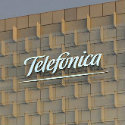More Towers for Sale: Telefónica's Turn to Offload Assets
Following Vodafone, Spain's biggest operator puts its mobile sites up for review as it tries to cut debts and lower costs.

It's starting to look like a buyers' market for mobile towers. Just weeks after the UK's Vodafone announced plans for an €18.4 billion ($20.3 billion) towers spin-off, Telefónica is making its own sales pitch. And if Vodafone's valuation criteria are credible, the Spanish operator's goods could be valued at €7.2 billion ($7.9 billion).
While a sudden influx of towers might dampen market demand, Vodafone insists infrastructure has been undervalued in the past, and that current interest points to an enterprise value of at least 20 times annual EBITDA (earnings before interest, tax, depreciation and amortization). Telefónica is considering "monetization" options for about 50,000 towers and estimates annual OIBDA (operating income before depreciation and amortization), an EBITDA alternative, at €360 million ($397 million).
Such lofty valuations have provided executives at Europe's debt-burdened operators with food for thought. Sales are not expected to show much improvement, even with the launch of 5G mobile services, and costs are mounting. Vodafone Group's debts could have spiraled to between 3.2 and 3.5 times annual earnings following its Liberty Global takeover, according to ratings agency Standard & Poor's. At the end of June, Telefónica's net debt equaled 2.6 times OIBDA in 2018. Both operators are cutting jobs to boost profits: Asset sales could similarly polish the financials.
Telefónica is already the majority owner of a towers business called Telxius, which looks after roughly 18,000 mobile sites across six markets in Europe and Latin America. The 50,000 under review are owned by other Group units and include 19,000 in Germany and around 7,000 UK sites through Telefónica's 50% stake in Cornerstone, a network-sharing venture with Vodafone. One option is to shift more sites into Telxius, whose minority investors include private equity company KKR Partners. But alternatives are on the table, says Telefónica, highlighting interest in its infrastructure among "both public and private market participants."
Like Vodafone, Telefónica may want to firm up the details of any network-sharing agreements before it thinks about divestment. "We want to establish those because it is important you reach agreement at a market level first, so that when you do monetization you are not locked into an excessively high number of sites," said Nick Read, Vodafone's CEO, during a recent phone call with analysts.
In the UK, Telefónica already shares some basestations with its Cornerstone partner, as well as the towers. Elsewhere in Europe, its mobile networks are used by Germany's Drillisch and Spain's Másmóvil, two smaller operators. But after spending more than €1.4 billion ($1.5 billion) during Germany's 5G auction in June, Telefónica expressed interest in finding new partners. "We are prepared to work closely with competitors willing to invest in network expansion," said Valentina Daiber, the German subsidiary's chief officer for legal and corporate affairs.
Vodafone is considering three broad "monetization" options that may have caught Telefónica's attention. The first would mean selling stakes in national tower companies to other tower players or financial investors. The second would entail the establishment of a holding company for all the tower assets. In a final step, said Read, Vodafone might sell a stake in this holding company to a third party.
Want to know more about 5G? Check out our dedicated 5G content channel here on
Light Reading.
But transferring control looks risky. For that reason, Read has ruled out the sale of anything bar a minority stake in the European holding company. And while he is open to bigger disposals at a local level, he would not accept a minority ownership role unless there is already a good supply of towers in a given market.
If Telefónica has similar qualms -- which is likely -- its monetization options for Telxius already appear limited: Its direct stake in the infrastructure business is down to just 50.01%, according to its most recent annual report, after previous divestment activity. It can fatten up Telxius by transferring assets to it from other Group entities, but it could not raise much from a sale of shares without ceding control. From a purely financial engineering perspective, it might prefer to keep the 50,000 sites outside Telxius and follow Read's example.
Deutsche Telekom, Europe's other telco giant, sounds much warier about tower monetization. "This business provides assets and is profitable and 100% of this business belongs to our shareholders already now," said CEO Timotheus Höttges when asked about interest in towers divestment during a recent phone call with reporters. "There is huge growth potential because with 5G microcell structures will allow us to further expand these sites, and so it is really good if 100% of this growth in these towers belongs to our shareholders."
"There could be a point in time when we try to realize some of the value of this asset … through partnerships or divestiture or an IPO [initial public offering]," he went on. "I have trust and confidence in my finance people and they will ensure we find the right time and place."
Related posts:
— Iain Morris, International Editor, Light Reading
Read more about:
EuropeAbout the Author(s)
You May Also Like



.jpg?width=300&auto=webp&quality=80&disable=upscale)








